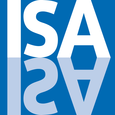Rheinisch-Westfälische
Technische Hochschule
RWTH Aachen University
Academic and Research Department Engineering Hydrology
The Institute of Engineering Hydrology has gone through an evolution, starting with classical deterministic rainfall-runoff modelling going over to coupling deterministic models with statistical modules and actually ending with rule based neuro-fuzzy modelling of dynamic systems.
Concerning quantitative hydrology the members of the work group have a sound knowledge of developing and applying rainfall-runoff models in all time and spatial scales of classical water management tasks. The range of developed models encompasses quantitative, deterministic rainfall runoff model and flood forecasting including Kalman Filter algorithms and GIS oriented models for the identification of diffuse sources. The concepts of those modelling systems were (besides the Kalman Filter Flood Forecasting) purely oriented towards deterministically process modelling, where the number of model parameters is pretty large and the demand for crisp input and output measurement is high.
Even though these models led to more accurate descriptions and characterisations of hydrological processes we still face the problem of complexity. “When the complexity of a system rises precise conclusions loose signification and reasonable conclusions loose accuracy” as Lotfi Zadeh has stated when he first announced his soft computing methods with fuzzy logic.
This technique allows straight mathematical computation with fuzzy information and even descriptive data. This fuzzy logic is an organized and mathematical method to handle inherently imprecise concepts and make use of know how and knowledge in form of rules. The theory of fuzzy logic and the method of coupling neural networks with fuzzy systems led to alternative models for simulating both quantitative and qualitative aspects of hydrology. Currently we focus on modelling dynamic processes combining non-fuzzy (so called crisp data) and fuzzy information.
Aimed to river basin management, these new models are derived as rule based systems which implement the knowledge of different scientists (from hydrologists to morphologists, geographers and ecologists). The model simulates the hydro-morphological structure of water bodies, predicts the change over time due to measures and thus enables to model water bodies form the scale of a 100 m segment up to the whole river basin. The necessary process of aggregation of (feasible) measures within this model is supported methods of data mining.
The rule based model is implemented into a Decision Support System and will be applied as a tool for the design of plans of measures for the EU Water Framework Directive in North Rhine Westphalia.
Using neuro-fuzzy models in conjunction with classical models has shown to be a target-oriented approach to simulate quantitative and qualitative aspects related to uncertainty.
– Civil Engineering
– Environmental Engineering
– Sustainable Management – Water and Energy
Mies-van-der-Rohe-Straße 17, 52074 Aachen
www.lfi.rwth-aachen.de/en/
Potential fields of work:
- Ministries
- Water boards
- Engineering companies
- NGOs
Entry requirement: none separate
Hydrological courses (selection):
- Hydrology and Water Management I (Quantitative Water Management)
- Hydrology and Water Management II (Ecological Issues)
- Engineering Hydrology
- Numerical Modelling in Water Resources
- Flood Risk Management
Academic and Research Department Engineering Hydrology
Lead:
Prof. Dr.-Ing. Heribert Nacken
www.lfi.rwth-aachen.de/de/mitarbeiter-2-2/
Research foci:
- Implementation of Sustainable Development Goals
- Rule-based modelling approaches
- VR in teaching
Hydraulic Engineering and Water Resources Management
Research focuses on flood protection, risk assessment of hydraulic-engineering facilities, waterway engineerng, morphodynamics and sediment transport, as well as experimental, numerical, and probabilistic methods in hydraulic engineering and water resources management.
www.iww.rwth-aachen.de
Institute of Environmental Engineering
Main topics: Water Supply, Urban Drainage, Waste Water Treatment and Solid Waste Disposal.



